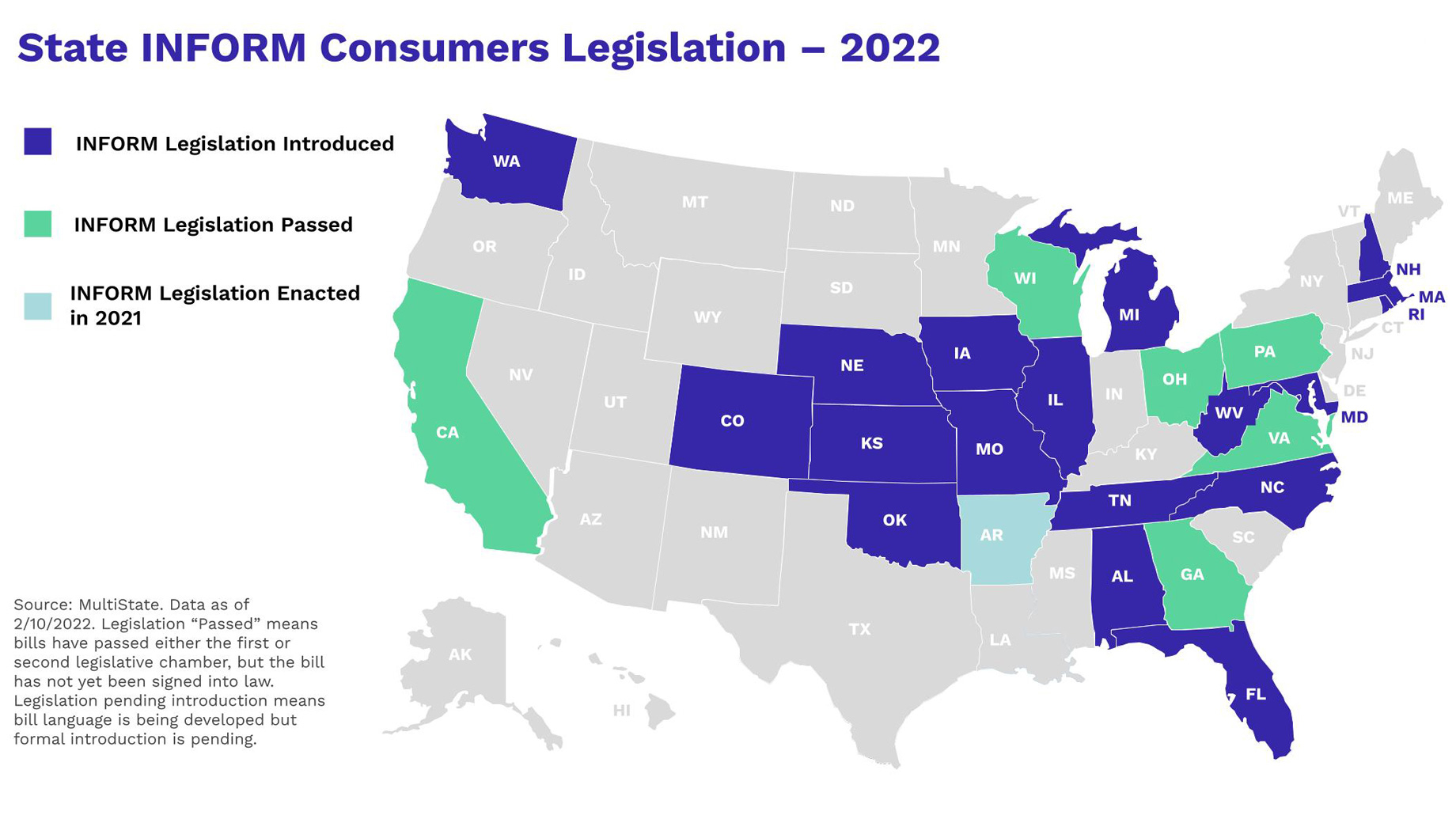Organized retail crime (ORC) has grown steadily over the past several years, with the Buy Safe America Coalition, of which ICSC is a member, estimating as much as $68.9 billion worth of merchandise was stolen from retailers in 2019. To address the issue, more than 100 legislative proposals dealing with corporate security issues and ORC have been introduced at the state and federal level in 2022.
Of the 46 states actively meeting in legislative sessions this year, 31 have introduced legislation to combat ORC. Legislative solutions generally fall into the following categories:
- Decreasing felony threshold levels or generally increasing penalties for theft. These bills make it easier for law enforcement to prosecute individuals for theft. Legislation pending this year includes WI AB 829, which has passed the Assembly, that imposes a mandatory minimum sentence of incarceration for 180 days for a third conviction for the offense of retail theft that occurs within 10 years of the previous convictions. Other pending legislation this year includes AZ SB 1472, CA AB 1603 and VA HB 107.
- Codifying the offense of organized retail crime. While some states have created the offense of organized retail crime that is punishable separately and more harshly than normal theft offenses, not every state has codified ORC as its own crime. States that have these laws already are also beginning to look to strengthen them. Both IL HB 4275 and WA SB 5781 fall under this category.
- Allowing for a series of thefts to be aggregated and allow aggregation to happen across jurisdictions. Even when law enforcement is able to identify organized retail crime, it can be difficult to prosecute because theft at one retail business falls under felony threshold levels and multiple thefts may cross jurisdictions. One solution is to allow a series of thefts committed over a period of time (usually 180 days) or across multiple jurisdictions to be prosecuted as a single theft to reflect the seriousness of the loss of property to businesses. Companion bills in Florida, FL HB 1511 & FL SB 1534, address these issues, as does MD SB 619.
- Impeding the ability for organized retail criminals to sell their goods anonymously over the Internet (known as INFORM Consumers bills). The most robust solution directed at ORC is legislation that addresses the place where goods are fenced: online marketplaces. Bills are pending in 24 states that are modeled after the Integrity, Notification, and Fairness in Online Retail Marketplaces (INFORM) Consumers Act, bipartisan federal legislation championed by ICSC and the Buy Safe America Coalition. Legislation has passed one chamber at the federal level, as part of the America COMPETES Act of 2022 (HR 4521), and in six states — California (CA SB 301), Georgia (GA SB 332), Ohio (OH HB 272 & OH SB 184), Pennsylvania (PA HB 1594), Virginia (VA SB 341) and Wisconsin (WI AB 743). Broadly, these bills require marketplaces to collect verifiable contact information for high-volume third-party sellers that sell over $5,000 worth of new and unused goods and require sellers to make disclosures to consumers. Greater transparency around these sellers helps law enforcement in the prosecution of those who abet criminals.
For more information contact ICSC Global Public Policy at gpp@icsc.com.
